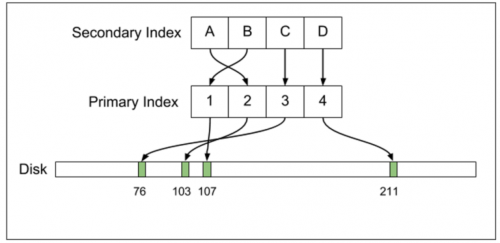SitePoint runs an extensive guide to the WordPress performance optimization. Not only it goes over the usual points like hosting selection and avoiding unnecessary plugins, but it also provides some insight into the WordPress database management and optimization, web server tweaks, and links to a few handy tools to help with performance of your site.
Category: Web work
These days, most of my work is very related to the online world. Building web sites, reviewing web applications, integrating with web services, coordinating people who are far away from each other, etc. Whenever I find a new tool or service or an innovative, interesting idea about working online, I share it in this category.
Semantic Versioning : Version 0 is unstable
We’ve been using Semantic Versioning for quite a while at work now. It’s easy to explain and follow, and it provides valuable context to the numerous releases of the projects and components that we are doing on a daily basis.
Turns out, however, that I missed a small, but important part of the standard. All releases in major version 0 are considered to be unstable, so even if they introduce backward compatibility breaking changes, there is no need to increment the major version to 1. Here’s the relevant quote:
Major version zero (0.y.z) is for initial development. Anything may change at any time. The public API should not be considered stable.
If you are relying on the semantic versioning in your projects, make sure to check your dependency management tool, to verify that it handles major version 0 correctly. Gladly, for us, composer does the job:
The
^operator behaves very similarly but it sticks closer to semantic versioning, and will always allow non-breaking updates. For example^1.2.3is equivalent to>=1.2.3 <2.0.0as none of the releases until 2.0 should break backwards compatibility. For pre-1.0 versions it also acts with safety in mind and treats^0.3as>=0.3.0 <0.4.0.
Inflected – a port of ActiveSupport’s inflector to Node.js and the browser
For the last few years I have been heavily involved in building web applications with the CakePHP framework. Apart from all the usual MVC, ORM, and so on, and so forth, features, I am a big fan of the CakePHP utilities. And among all of them, my long time favorite is the Inflector class.
The Inflector class makes makes word transformations a breeze – camel-casing, snake-casing, plural, singular, and so on – work like a charm at least for the English language. It’s also possible to use the same functionality for other languages, but that would require quite a bit of the linguistic expertise.
I’ve got so used to the inflections that I miss them every single time I have to step out of the CakePHP framework. This doesn’t happen very often for me in the PHP domain, but JavaScript is a totally different story.
The other day I came across the inflected library, which brings most of the CakePHP’s Inflector to JavaScript, via either a Node.JS NPM package, or a simple inclusion of the JavaScript file to the page source and laying off all the hard work on to the browser.
I’m a lot happier with my universe now.
Why Uber Engineering Switched from Postgres to MySQL
“Why Uber Engineering Switched from Postgres to MySQL” is an interesting study with plenty of technical detail of how MySQL was a better choice than PostgreSQL for the very demanding growth of Uber. These kinds of issues are probably way out of scope for any “regular Joe” application, but the insight into the differences of MySQL and PostgreSQL architectures is still useful.
Main PostgreSQL limitations covered by the study are:
- Inefficient architecture for writes
- Inefficient data replication
- Issues with table corruption
- Poor replica MVCC support
- Difficulty upgrading to newer releases
forget-db – a simple GDPR inspired tool to anonymise confidential database data
A simple(ish) command line tool written in PHP 7.1 using Laravel Zero and Faker to help you anonymise/pseudonymise data within your database to support protecting either sensitive information, or peoples right to be forgotten with GDPR compliance.
The tool allows you to connect to either mysql, postgres, sqlite or sqlserver and replace defined information with random data to allow you to keep statistics/relationships/audit of actions etc.
It uses a simple yaml configuration file to define the conditions for overwriting, which fields you want to overwrite, and what to overwrite them with.

